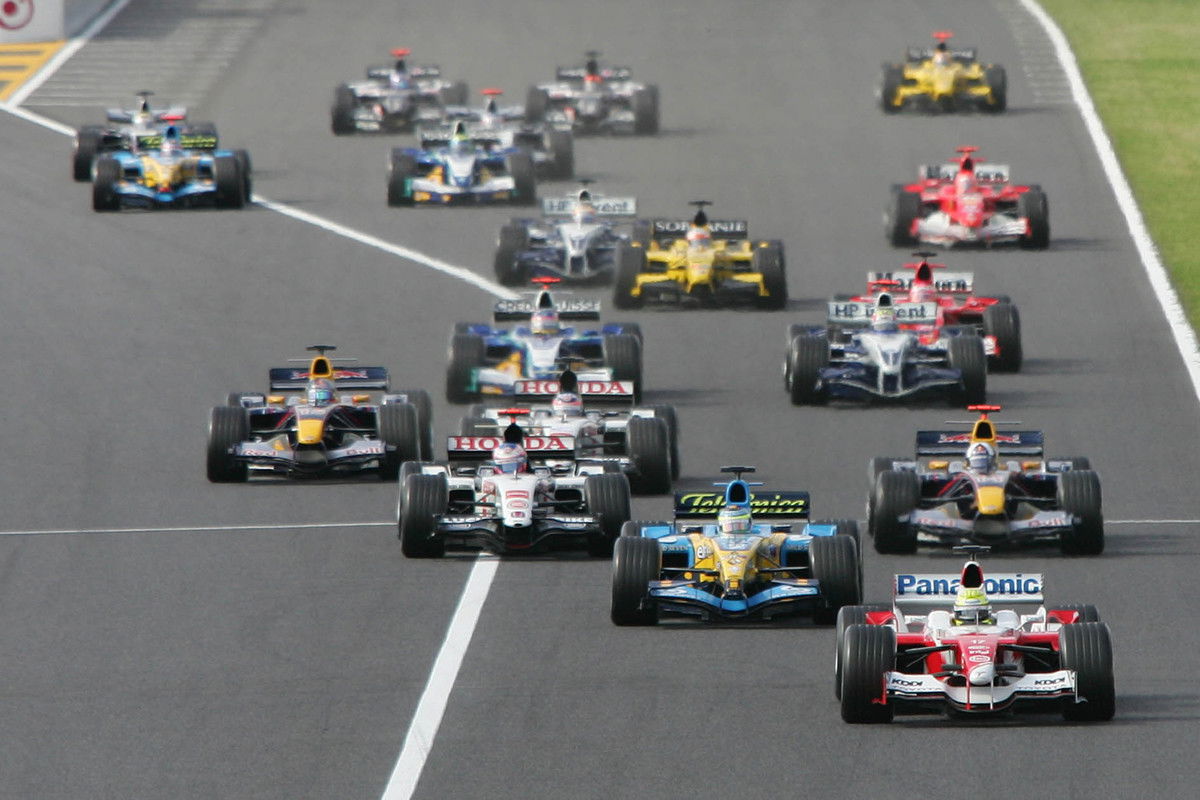

FIA president Mohammed Ben Sulayem suggested last month that Formula 1 could return to normally aspirated engines in future.
His comments come with the sport on the cusp of introducing new power unit regulations for next season that increase the reliance on hybrid power.
F1 will also switch to sustainable fuel as part of the new rules.
The introduction of sustainable fuel brings with it debate surrounding the future of the internal combustion engine.
Globally, auto manufacturers have moved away from large displacement engines and increasingly towards hybrids.
That trend has been reflected, and in some ways anticipated, by F1’s regulations which deliberately cater to the desires of car companies.
It’s an approach that has drawn Ford and Audi into F1 next season, with Cadillac poised to develop its own engine as Toyota maintains a watching brief courtesy of a relationship with Haas.
The next generation of power unit regulations will span 2026 to 2031 but beyond that, the shape of F1’s engine regulations is subject to debate.
“Personally, from a sporting perspective, looking at what the future engine of Formula 1 should be beyond this next generation, I think particularly with the way that sustainable fuel is going, it does open up all kinds of opportunities,” said Red Bull team boss Christian Horner.
Red Bull has embarked on its own ambitious engine program following Honda’s initial decision to leave F1.
That has seen the creation of Red Bull Powertrains, which is working in concert with Ford on developing the championship-winning operation’s own engines for next season.
It’s a significant investment and elevates Horner from a team principal with a customer supply of power units to the leader of an OEM in its own right.
“Inadvertently, we’ve ended up with a very, very expensive, very complex engine from ’26 onwards,” he reasoned of the forthcoming regulations.
“The purest in me would love to go back to a V10 that was done responsibly with sustainable fuel that reintroduced the sound of grand prix racing.
“It’s an interesting concept and one to certainly look for after this current set of regs.”
The return of ear-piercing, high-revving engines is also of interest to Mercedes’ Toto Wolff.
Unlike Horner, who oversees Red Bull’s racing team and engine program, Wolff is head only of Mercedes’ F1 racing operation with its engines developed by HPP, a sister organisation led by Hywell Thomas.
However, as a third owner of the F1 team alongside Daimler and Jim Ratcliffe, he has a vested interest and significant influence in the direction the sport goes technologically.
For the moment, that is towards an increased reliance on hybrid power, a point he argues needs to be better celebrated before considering what might come next.
“We should be excited about these new regulations coming in next year,” he reasoned.
“It is important to have the positivity about it that such an exciting motor comes into the car.
“We are pushing the boundaries; it’s really exciting that Formula 1 is trail-blazing.
“So all of our stakeholders, I think we should be really cheering for this and making sure that the sport is perceived in such a high-tech way as it needs to be and less driven by opportunistic thoughts.”
Wolff is open to the concept of change in future, though concedes he doesn’t know what that looks like – nor does he feel now is the right time to be discussing it.
“This is a five-year cycle,” he said of the next-generation power units.
“Whilst this is the journey onwards, having a discussion about what comes afterwards, whether it is an eight-cylinder V8s that we like a lot, that are maybe more road relevant than a V10 going forward…
“It’s also an exciting discussion to be had: what kind of hybrid system could be playing that role; is the sound going to go up?
“All this is really an interesting conversation within a life cycle of regulations, and that’s worth it.
“But at the moment, I think it’s a bit premature and we’re at risk of diluting the messaging to the world if, the year before we have even started these new exciting regulations, we talk about something that comes later.”





















Discussion about this post